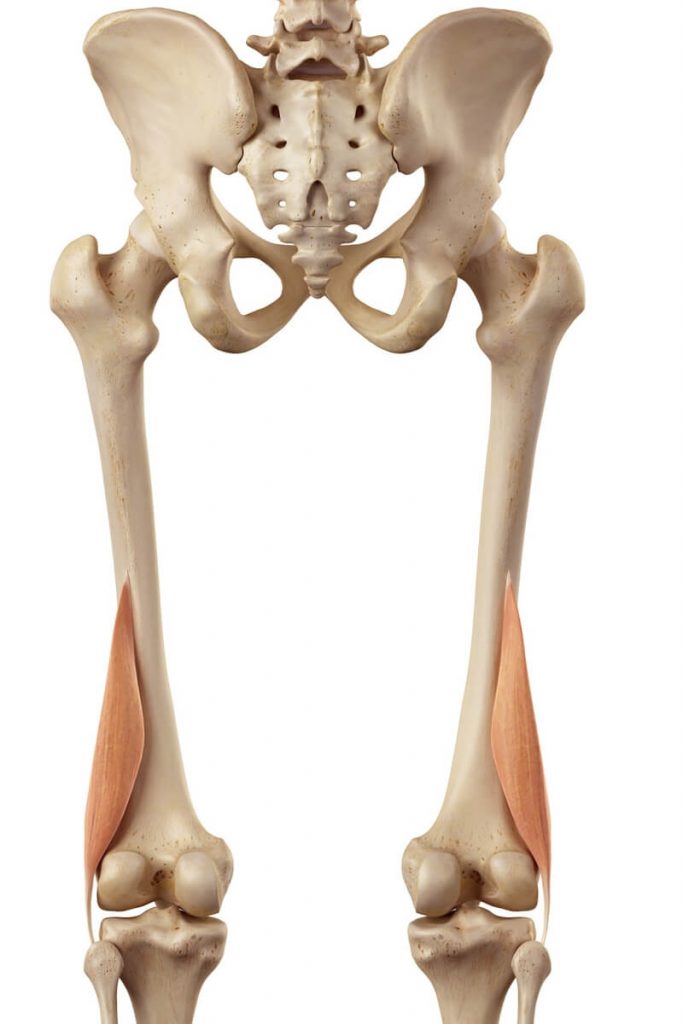
Musculus biceps femoris sportbachelor
The simple fibular and tibial repair construct () involved 1 double-loaded 4.5-mm suture anchor (Corkscrew) at the proximal fibular insertion of the biceps femoris, one 3.0-mm suture anchor (SutureTak) at the distal fibular insertion of the biceps femoris, and one 3.0-mm suture anchor (SutureTak) at the tibial insertion of the biceps femoris.
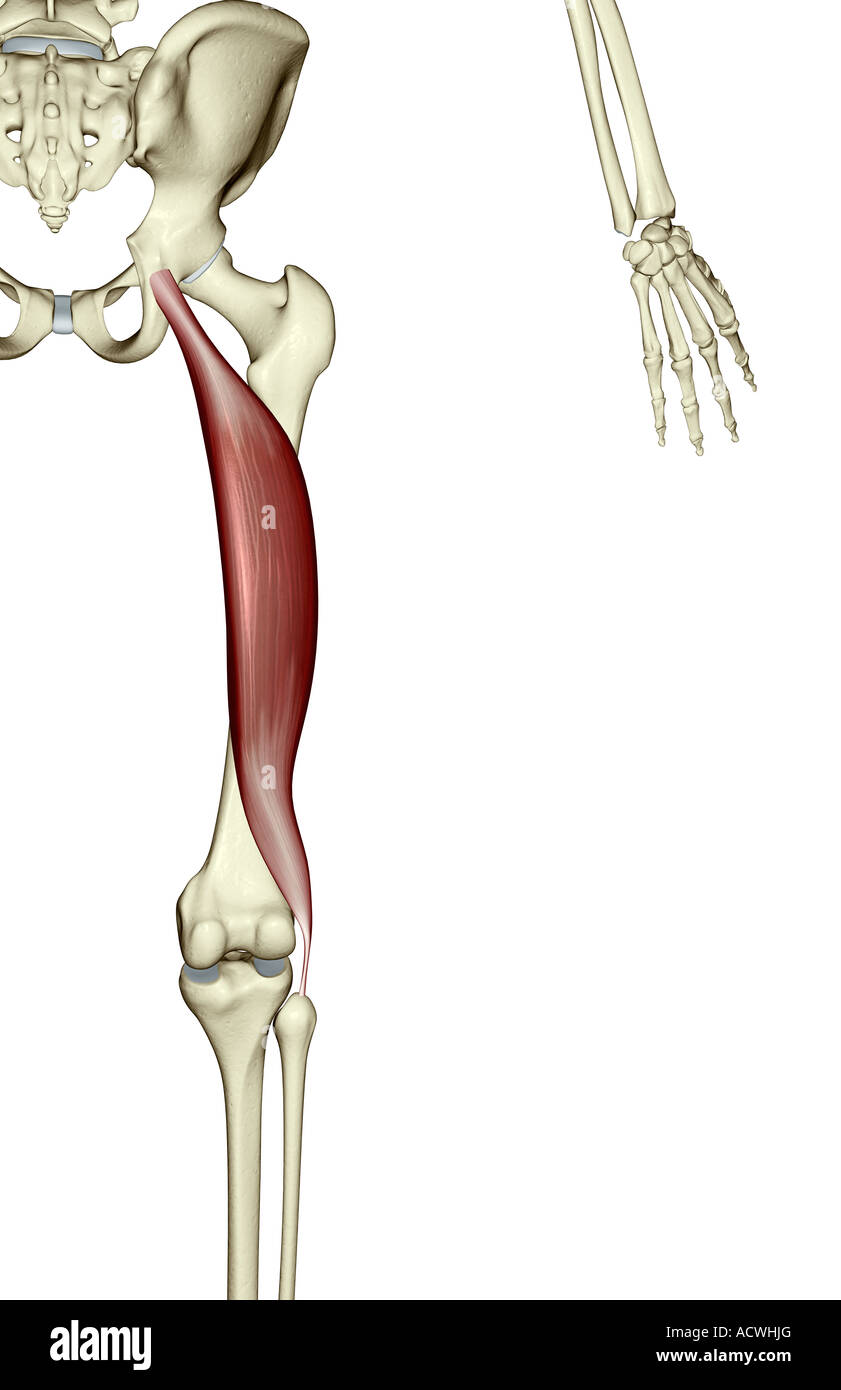
Biceps femoris fotografías e imágenes de alta resolución Alamy
The biceps femoris is a muscle within the posterior compartment of the thigh. It has two heads (long head and short head) and is the most lateral of the muscles in the posterior thigh. The common tendon of the two heads can be felt laterally within the popliteal fossa (posterior knee region). Attachments :
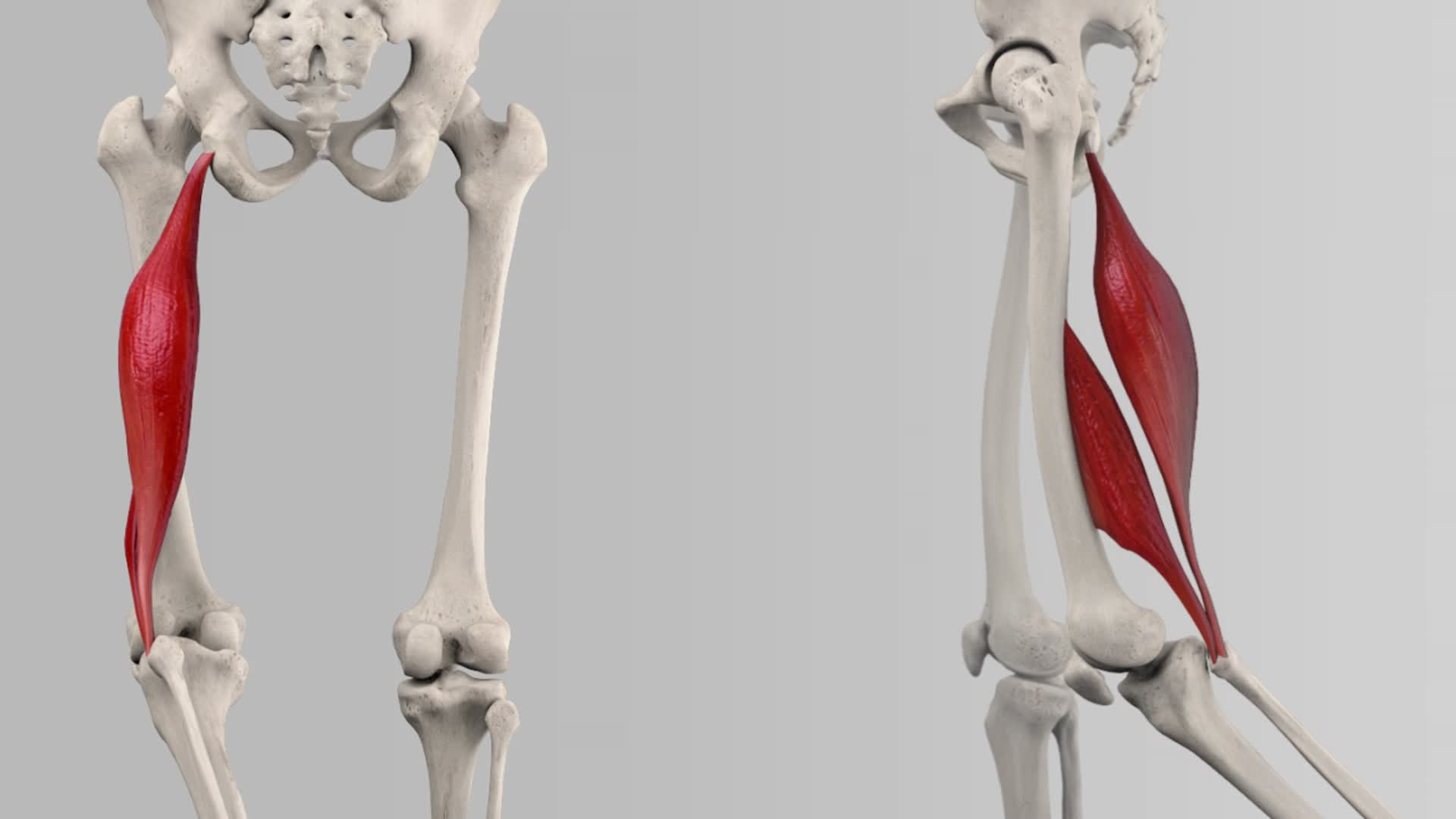
Musculus biceps femoris DocCheck
The biceps femoris tendon attaches the muscle bellies of the long and short heads of the biceps femoris muscle to the head of the fibula. This insertion site allows the biceps femoris muscle to be able to: - flex the leg at the knee joint; - laterally rotate the leg at the knee joint while this joint is held in a semiflexed position.

Músculo bíceps femoral Wikiwand
The biceps femoris is one of the large muscles in the posterior compartment of the thigh and a component of the hamstrings. It has a long and a short head, each with different functions and innervation. Its medial border forms the superolateral border of the popliteal fossa. Summary origin long head: medial facet of the ischial tuberosity
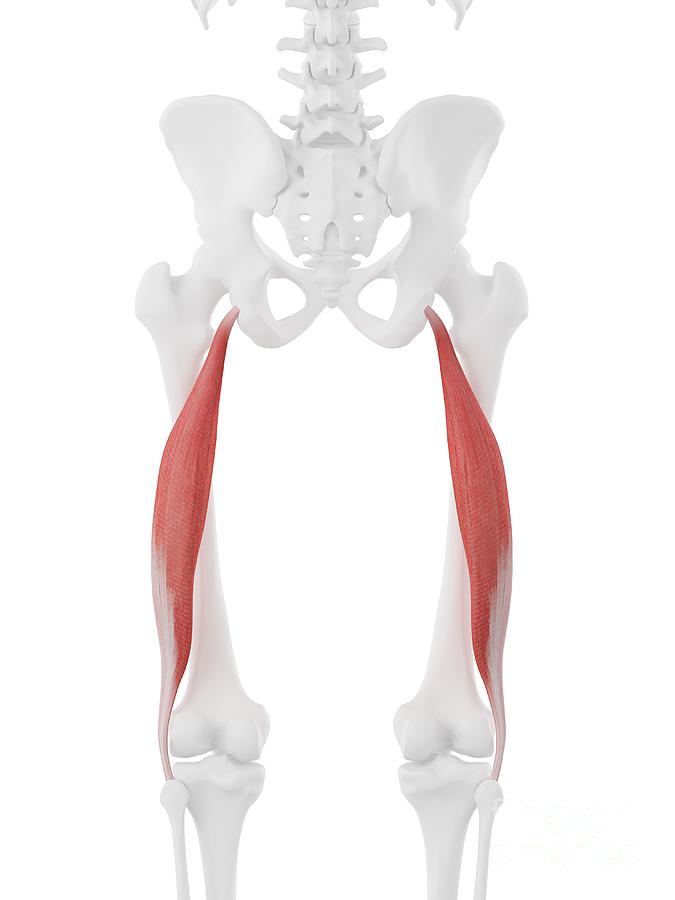
Biceps Femoris Longus Muscle Photograph by Sebastian Kaulitzki/science Photo Library Pixels
Description Biceps femoris is a muscle of the posterior compartment of the thigh, and lies in the posterolateral aspect. It arises proximally by two 'heads', termed the 'long head' (superficial) and the 'short head' (deep). It is part of the hamstrings. [1] Anatomy Origin Long head: ischial tuberosity [3]

biceps origin and insertion
M. biceps femoris: The biceps femoris muscle arises from the ischial tuberosity. The muscle forms a thin aponeurosis that is inserted into the deep fascia of the proximal hind limb, the head of the fibula, the lateral tibial condyle, and the capsule of the knee joint.

Anatomical model showing the biceps femoris muscles Stock Photo Alamy
The biceps femoris is a double-headed muscle located on the back of thigh. It consists of two parts: the long head, attached to the ischium (the lower and back part of the hip bone), and the.

Muscle Breakdown Biceps Femoris
Avulsion injury of the distal biceps femoris can occur as an isolated injury or as part of a multiligament injury pattern, with or without concomitant injury to additional lateral knee structures. ∥ Through qualitative, quantitative, and biomechanical study, the anatomy and strength of the fibular collateral ligament (FCL), popliteofibular ligament, and popliteus tendon have been described.
:background_color(FFFFFF):format(jpeg)/images/library/12929/Biceps_femoris_muscle.png)
Biceps femoris Origin, insertion, innervation, function Kenhub
The biceps femoris muscle is the strongest of the hamstring complex and is responsible for flexion, external rotation, and posterolateral stability of the knee. The biceps femoris muscle has a long and a short head. In some normal variants, the short head of the biceps femoris may be absent.
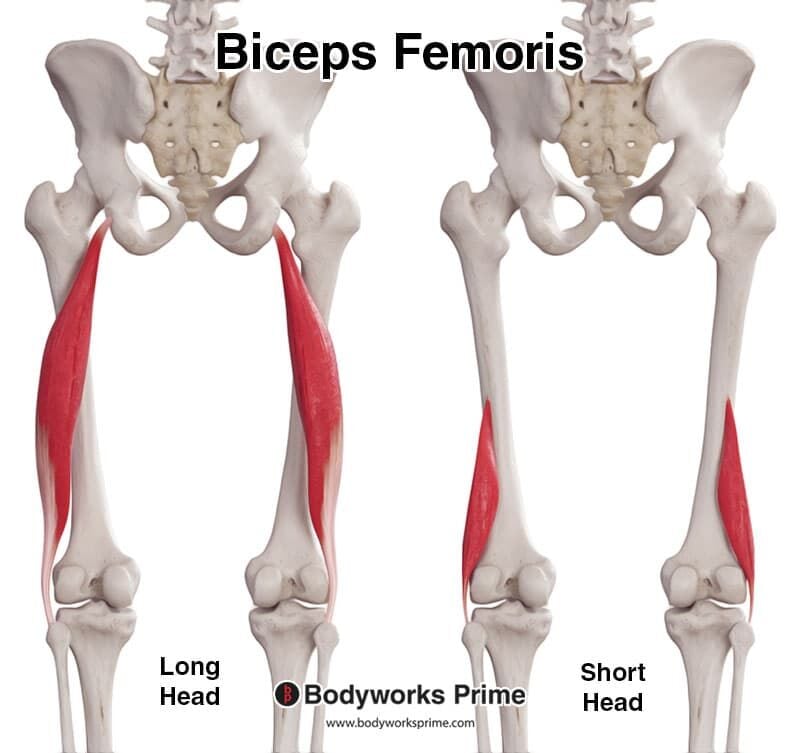
Biceps Femoris Muscle Anatomy Bodyworks Prime
The biceps femoris ( / ˈbaɪsɛps ˈfɛmərɪs /) is a muscle of the thigh located to the posterior, or back.

Biceps Femoris 5 Exercises and 3 Stretches Inspire US
M. biceps femoris: The biceps femoris muscle arises from the ischial tuberosity. The muscle forms a thin aponeurosis that is inserted into the deep fascia of the proximal hind limb, the head of the fibula, the lateral tibial condyle, and the capsule of the knee joint. This muscle can be used to administer intramuscular injections [12]. •
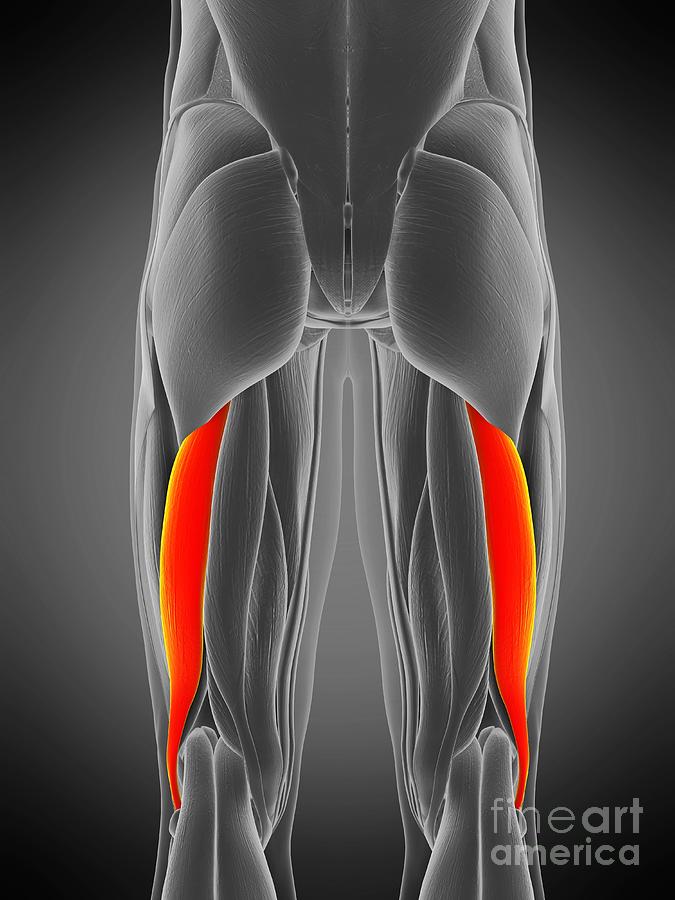
Biceps Femoris Longus Muscle Photograph by Sebastian Kaulitzki/science Photo Library Fine Art
The biceps femoris is a long muscle in the posterior compartment of the thigh responsible for movement at both the hip and knee joints. Along with the semitendinosus and semimembranosus, the biceps femoris makes up the hamstrings muscle. The muscles of the hamstring border the popliteal fossa, which is a triangular space behind the knee.

Základy sportovní kineziologie Fakulta sportovních studií
Dr. Ebraheim's educational animated video describes the anatomy of the Biceps Femoris muscle. The biceps femoris is a muscle of the posterior thigh. The bic.
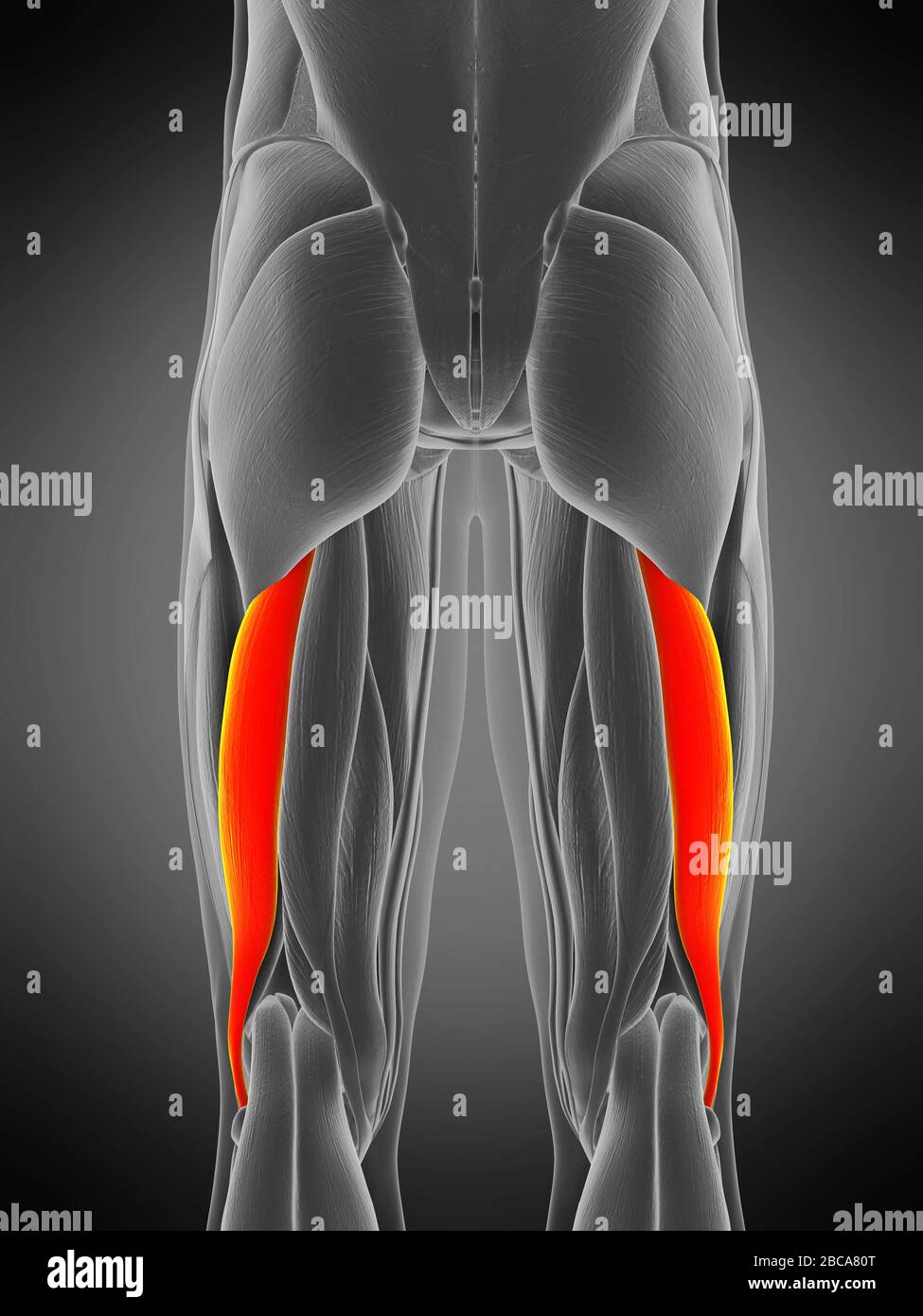
Músculo bíceps femoris largo, ilustración Fotografía de stock Alamy
The biceps femoris, along with the other two muscles of the hamstring group, is involved in knee flexion and hip extension. The biceps femoris also helps to stabilize the knee and pelvis. How.
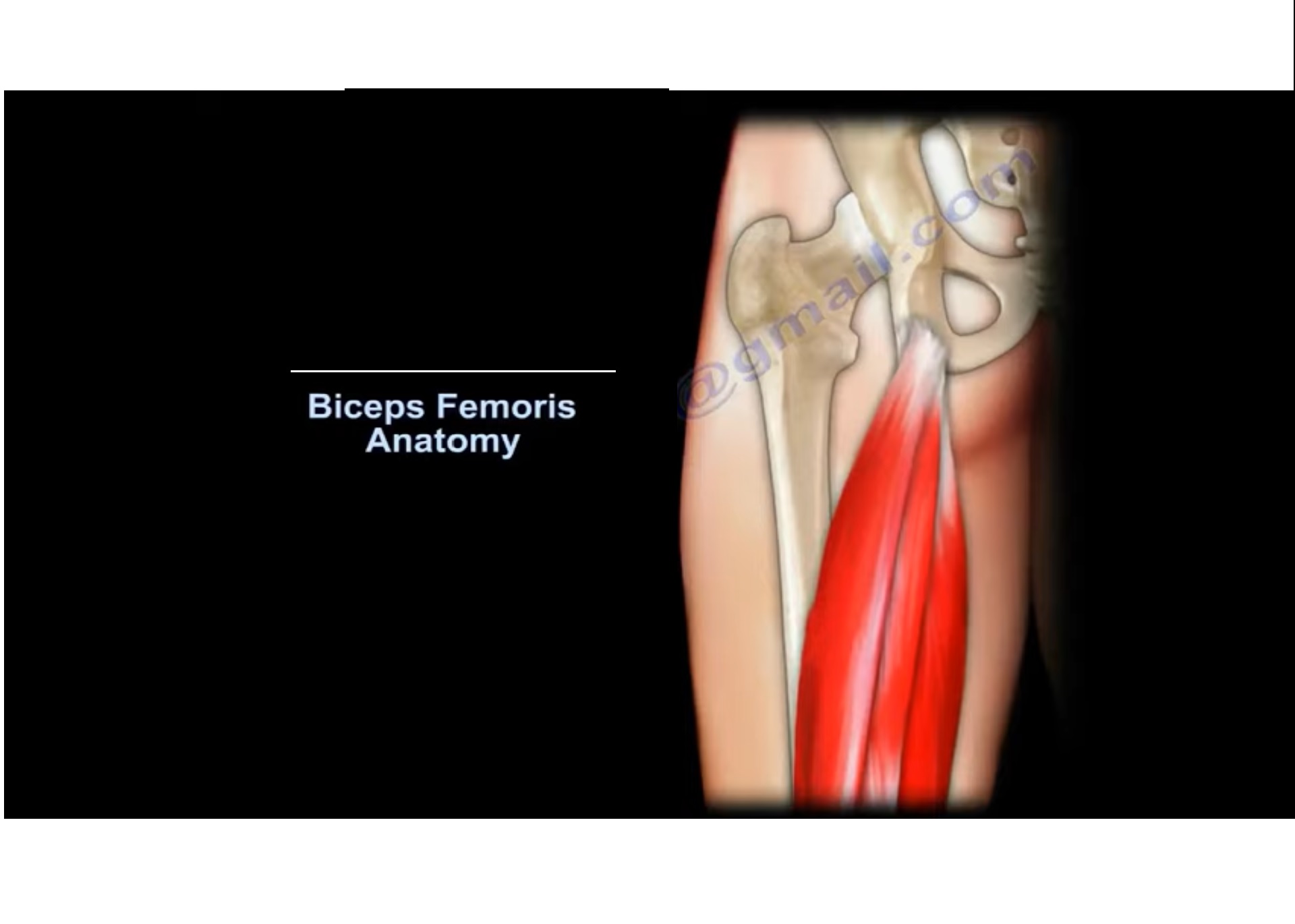
Anatomy of Biceps Femoris —
Dr. Ebraheim's educational animated video describes the condition of biceps femoris muscle anatomy. The biceps femoris is a muscle of the posterior thigh. The biceps femoris is one of the three flexor muscles of the posterior thigh. The ischial tuberosity is divided by a transverse ridge into an upper quadrangular portion and a lower.

Biceps femoris What Is It, Location, Action, and More Osmosis
In more technical terms, the biceps femoris is a two-headed (hence "biceps") skeletal muscle, with one superficial head and the other being far deeper in the leg. The origin point is in the femur, while the distal attachment point lies in the fibula of the calves. The biceps femoris is located alongside the semitendinosus and.